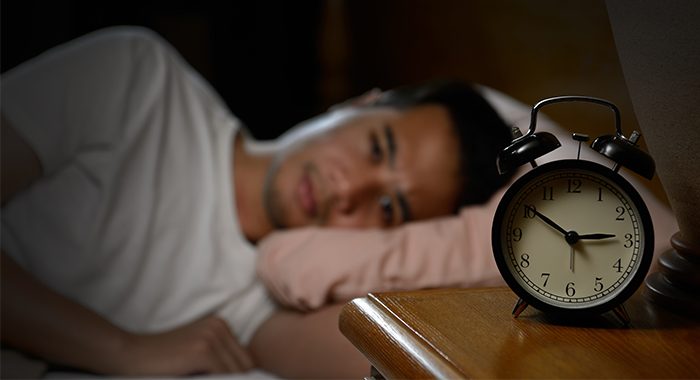When was the last time you had a sound sleep? Are you sleeping for an ample amount of time every day?
If No, you are probably suffering from a sleep disorder.
If the answer is yes, but you still have been feeling tired and drowsy even after a good night’s sleep, there is a higher possibility that you are suffering from a sleep disorder.
Sleep plays a vital role in regulating the body’s metabolism. The amount of sleep required for a person differs with age. Research suggests that an adult needs 7- 8 hours of sleep to have a good rest. Any change in the suggested sleep pattern hurts health.
How well do you know about sleep disorders?
Sleep disorder is a condition that results from the anomalies in the sleep-wake cycle. Sleep disorder is prevalent almost among all age groups.
Causes of Sleep Disorders:
- Psychiatric conditions – Sleep deprivation or the inability to fall asleep as a result of stress, anxiety, and depression.
- Chronic Pain – Difficulties in falling asleep due to persistent pain. Especially pain associated with arthritis, headaches, Back pain, etc.
- Nocturia – Waking up frequently at irregular intervals during the night to urinate often disrupts sleep.
- Lifestyle – Working on night shifts, irregular food habits, and liquor consumption affects the quality of sleep.
- Environment – Sleep deprivation due to environmental conditions such as exposure to bright lights, loud noise, and extreme room temperature.
- Medications – Several medicines interrupt the sleep cycle.
- Aging – The ability to have a good sleep decreases with aging. Older people above 65yrs of age are likely to be exposed more to sleep problems.
Types of Sleep Disorders:
Sleep Disorder Institute, listed as one of the top-rated Sleep clinics in Newyork, states that there are more than 80 sleep disorders identified in humans through the current diagnostic system. However, common types of sleep disorders are:
- Restless Leg Syndrome – Aka Willis-Ekbom Disease is a condition that induces an irresistible urge to move your legs, usually because of an uncomfortable sensation. It typically occurs during nighttime while sitting or lying down.
- Insomnia – A condition which is characterized by the difficulty in falling asleep and staying asleep throughout the night. It is the most common type of sleep disorder.
- Narcolepsy – It is a chronic neurological condition that affects the brain’s ability to control the sleep-wake cycle. Falling asleep during an activity and on daytime, Sleep paralysis, excessive sleepiness are characteristics of narcolepsy.
- Jet Lag – It is a temporary sleep disorder that occurs as a result of traveling continually across multiple time zones.
- Obstructive sleep apnea – This is an acute sleep disorder where the breathing stops and starts during sleep due to intermittent blockage. Loud snoring is a symptom of obstructive sleep apnea. Obesity is the main reason for this condition.
- Pediatric sleep disorders – It is a set of sleep disorders identified in children and adolescents. It affects their behavior and causes ADHD and obesity.
- Night terrors and sleepwalking – Wakefulness due to nightmares, lucid dreaming, and episodes of getting up and walking around while asleep is a sleep disorder widely seen in children.
- Delayed sleep phase syndrome – The delay in falling asleep beyond conventional bedtime.
Treatment:
Most of the sleep disorders are treatable. Sleep clinics are proven to be the best option for the treatment of sleep problems.
Why do we need Sleep Clinics?
Although general physicians treat sleep disorders, their medications and treatment procedures don’t seem to help in the longer run. Some conditions need specialized care. Sleep clinics excel in providing plausible solutions by employing a sleep therapist’s expertise in treating all kinds of sleep disorders.
What do sleep clinics do?
- Polysomnography – Sleep specialists perform several tests to study the sleep-wake cycle in an individual. Sleep studies help in the diagnosis of sleep disorders.
- Sleep Testing – Nocturnal Polysomnography, Home Sleep Test, PAP NAP, Nocturnal Seizure Recording, Multiple Sleep Latency Test, Holter Monitor, and Multiple Sleep Latency Test are performed to evaluate sleep problems in individuals.
Sleep clinic provides customized treatment plans and Non-drug behavioral therapies for children that are proven to be successful.
A good sleep is the key ingredient to a healthy life. So, never let anything ruin your relationship with sleep.












Read 0 comments and reply